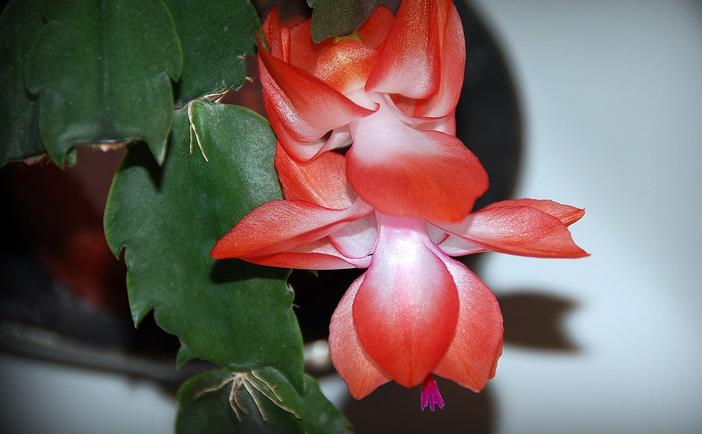Easter Cactus
(Hatiora gaertneri)
Easter Cactus (Hatiora gaertneri)
/
/

Hans J E
CC BY-SA 2.0
Image By:
Hans J E
Recorded By:
Copyright:
CC BY-SA 2.0
Copyright Notice:
Photo by: Hans J E | License Type: CC BY-SA 2.0 | License URL: https://creativecommons.org/licenses/by-sa/2.0/ | Uploader: Hans J E | Publisher: Flickr

















Estimated Native Range
Summary
Hatiora gaertneri, commonly known as Easter Cactus, is a deciduous succulent native to the rainforests of Brazil, where it thrives as an epiphyte on trees or, less commonly, as a lithophyte on rocks. It is well-adapted to the humid and shaded conditions of the forest understory. The Easter Cactus matures into a branching, pendant, leafless shrub with a woody base, typically reaching a modest size suitable for indoor cultivation. Its stems are composed of jointed segments that give it a distinctive appearance. The scarlet flowers are particularly showy, blooming in late spring to coincide with Easter in the Northern Hemisphere, hence its common name. These flowers emerge from areoles at the ends of the stems, opening to a funnel shape with a diameter of about 4–7.5 cm (1.6–3.0 in). Following pollination, red oblong fruits develop, adding further interest to the plant.
The Easter Cactus is valued for its vibrant scarlet flowers and ease of care, making it a popular choice for indoor gardeners and as a gift plant during its flowering season. It is often used in hanging baskets or as a tabletop plant. In cultivation, it prefers part shade to full shade, mimicking its natural forest floor habitat. It requires medium to high amounts of water, especially during the growing season, and well-draining soil to prevent root rot. The Easter Cactus can suffer from overwatering and pest infestations, such as mealybugs and scale insects. It is also sensitive to sudden changes in temperature or light, which can cause bud drop. The hybrid S. × graeseri, resulting from a cross with Schlumbergera rosea, offers cultivars with a wider range of flower colors.CC BY-SA 4.0
The Easter Cactus is valued for its vibrant scarlet flowers and ease of care, making it a popular choice for indoor gardeners and as a gift plant during its flowering season. It is often used in hanging baskets or as a tabletop plant. In cultivation, it prefers part shade to full shade, mimicking its natural forest floor habitat. It requires medium to high amounts of water, especially during the growing season, and well-draining soil to prevent root rot. The Easter Cactus can suffer from overwatering and pest infestations, such as mealybugs and scale insects. It is also sensitive to sudden changes in temperature or light, which can cause bud drop. The hybrid S. × graeseri, resulting from a cross with Schlumbergera rosea, offers cultivars with a wider range of flower colors.CC BY-SA 4.0
Plant Description
- Plant Type: Succulent
- Height: 1-1.5 feet
- Width: 0.8-1 feet
- Growth Rate: Slow
- Flower Color: Pink, Red
- Flowering Season: Spring
- Leaf Retention: Evergreen
Growth Requirements
- Sun: Part Shade
- Water: Medium, High
- Drainage: Fast
Common Uses
Bee Garden, Bird Garden, Butterfly Garden, Hummingbird Garden, Low Maintenance, Potted Plant, Showy Flowers, Street Planting
Natural Habitat
Rainforests of Brazil, as an epiphyte on trees or lithophyte on rocks
Other Names
Common Names: Whitsun Cactus
Scientific Names: , Schlumbergera gaertneri, Hatiora gaertneri, Rhipsalidopsis gaertneri, Epiphyllopsis gaertneri, Rhipsalis gaertneri, Epiphyllopsis gaertneri var. tiburtii, Epiphyllum gaertneri, Epiphyllopsis gaertneri var. serrata, Epiphyllum makoyanum
GBIF Accepted Name: Hatiora gaertneri (Regel) Barthlott